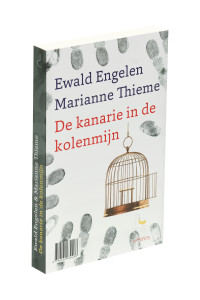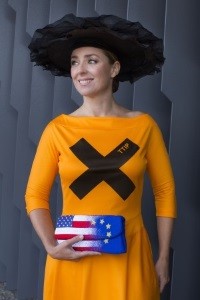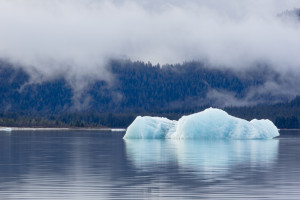Worldlog 18 aprile 2016
Domenica il dieci aprile era gia’ il 22esimo congresso del nostro partito. Oltre 400 membri erano presenti per questa giornata interessante. Ad ogni congresso trovo speciale vedere persone molto diverse, partecipare e condividere la ideologia del nostro partito. Oltre alle solite presentazioni con i risultati dell’anno, Ewald Engelen, professore di geografia finanziaria, ha fatto una relazione sulla sua visione sulla crisi bancaria. Ha paragonato il sistema finanziario completamente immarcito con la modalita’ in cui e’ stato organizzato il fornimento di cibo, compreso tutti gli scandali come ad esempio quello della carne dei cavalli. Ha anche raccontato come lui stesso ha cambiato da essere un forte carnivoro ad un vegetariano. Ho scritto insieme ad Ewald il libro “La Canaria nella Mina”.

Nel libro si uniscono le nostre visioni sull’economia e sull’ecologia. Il nostro libro esce nei Paesi Bassi questa settimana. Specialmente per quelli interessati verra’ pubblicata anche una versione inglese nella forma di un libro digitale. Aspettiamo questa versione a maggio, quindi vi terro’ aggiornati!
Nel scorso Worldlog vi ho raccontato sul referendum che e’ stato fatto il 6 aprile nei Paesi Bassi. Gli olandesi hanno potuto esprimersi sull’accordo di libero commercio tra la UE e l’Ucraina. Con il mio partito ho fatto una campagna contro l’accordo e sono quindi contenta che la maggioranza della gente ha infatti votato contro l’accordo. Trovo che il nostro governo, che e’ a favore dell’accordo, non possa ignorare l’esito del referendum. La settimana scorsa vi era un dibattito nella Camera dove di nuovo ho fatto presente che un “no” del popolo olandese deve significare un vero no e che l’accordo quindi non puo’ essere attivato.
In passato ho gia’ chiesto al nostro governo di organizzare un referendum sul TTIP (accordo su commercio libero). Ai tempi la mia richiesta e’ stata negata. L’esito del referendum sull’accordo di libero commercio con l’Ucraina dimostra che la maggioranza dell’elettorato e’ critica in confronte agli accordi di libero commercio. Ho quindi proposto una nuova mozione per un referendum sul TTIP. Nella settimana del 25 aprile si votera’ sull’argomento.

‘Cosa servono i soldi se si sciogle la calotta polare’? Questo era il titolo del mio contributo la settimana scorsa al dibattito della regione artica. Vogliamo che il governo faccia tutto per proteggere il polo nord. Per il polo sud il governo olandese combatte per completa protezione, ma per il polo nord sembra il guadagno ecnomico abbia priorita’ a contrario della vulnerabile natura ed ambiente.
Lo dico poiche’ la Camera ha accettato nel 2014 una mia mozione per liberare la regione artica da iniziative di petrolio e gas, ma il governo sembra puntare sullo sviluppo di opportunita’ economiche nella zona del polo nord. Il governo vuole addirittura proteggere le interessi delle aziende olandesi che possono guadagnare soldi con il petrolio e il gas, che ora sono fattibili grazie al riscaldamento del polo nord.

Il governo vuole proteggere tutto cio’ che e’ bello, puro ed importante, a meno che non via siano delle opportunita’ di guadagnare soldi. Il governo deve dare priorita’ alla tutela della regione artica e di tutto il pianeta per ulteriore riscaldamento ed inquinamento. Non esiste nessun’ altra priorita’ che possa valere di piu’.
Ecco quello che volevo condividere con voi, alla prossima volta!
Cordiali saluti,
Marianne
On Sunday the 10th of April, we celebrated our Party´s already 22th congress. More than 400 members were present on this inspiring day. Every congress it is remarkable to see people of so many different backgrounds sharing our party’s ideals. In addition to the customary items such as an annual report and annual financial accounts, Professor of Financial Geography Ewald Engelen gave a guest lecture on his views of the banking crisis. He compared the thoroughly rotten financial system to the way our food supply, with its many food scandals including the horse meat fraud, is organised. He also talked about how he had shifted from being a confirmed meat-eater to being a vegetarian. Together, Ewald and I have written our new book De Kanarie in de Kolenmijn (The Canary in the Coal-mine).

In De Kanarie in de Kolenmijn, our visions on economics and ecology meet. As of this week, our book will be sold in the Netherlands. An English version in the form of an e-book will also be published specially for our international readers. This e-book is expected to come out in the beginning of May, so I will keep you informed!
In my last Worldlogs, I have written about the referendum that was held in the Netherlands on 6 April. With this referendum, the Dutch people were able to indicate whether they were in favour of or against the trade agreement between the EU and Ukraine. Together with our party members, I have campaigned strongly against this agreement and I am therefore glad that a majority of the Dutch citizens has also voted against. I think that our government, which is in favour of the treaty, may definitely not ignore the result of this vote. Last week, during a debate in the Lower House, I have indicated once again that a no vote by the Dutch people should literally mean no, and the treaty should therefore not be ratified.
Earlier I have urged our government to hold a referendum on TTIP, but my request was denied. The result of the referendum on the EU/Ukraine treaty shows us that a majority of our voters are critical of free trade agreements. That is why I have once again tabled a motion for a referendum on the desirability of TTIP. It will be put to the vote during the week of 25 April.

“What good will money do you when the icecaps are melting?” That was the title of my contribution to the debate on the Arctic Region last week. We want to see the government fully commit itself to the protection of the North Pole. The Dutch government is fighting for optimum protection of the South Pole, but when it comes to the North Pole, economic gain seems to be put above the fragile wildlife and environment.
After all, despite the fact that the Lower House carried my motion of 2014 on safeguarding the Arctic Region against oil and gas extraction, the government still seems to be focusing on developing economic opportunities in the Arctic. The government is even planning on taking an active role in looking after the interests of Dutch companies that will make money from oil and gas drilling, which has now become possible due to the warming of the North Pole.

The government is willing to protect all that is beautiful, unspoiled and meaningful, expect when there is money in the ground. The government should make the protection of the Arctic Region and the entire planet against further warming and pollution its priority. No other interest can be of more importance.
That’s it for now, until next week!
Kind regards,
Marianne